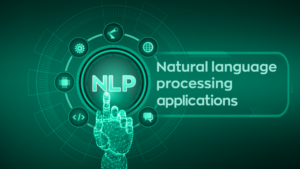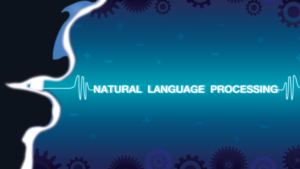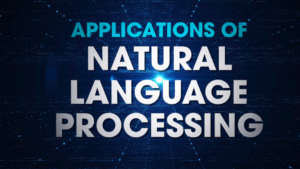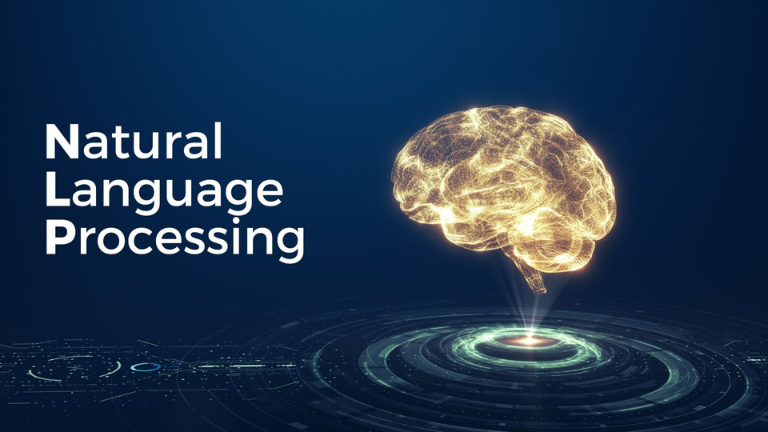What is Natural Language Processing (NLP) for New Applications?
Natural language processing (NLP) is used in computers to understand human language, such as written, spoken, or even scribbled. It is in the form of artificial intelligence (AI), and it is mostly used in our daily lives to correct grammar mistakes, form the correct sentences, and receive the full search data in the AI. Day-to-day and minute-to-minute AI is updated. Natural Language Processing (NLP) for education involves the application of computational techniques to process and analyze natural language data in educational contexts.

Key Applications
Intelligent Tutoring Systems:
NLP can power intelligent tutoring systems that provide personalized feedback and support to students. These systems can understand and respond to student queries in natural language, making learning more interactive and tailored to individual needs.
Automated Essay Scoring and Feedback:
NLP algorithms can evaluate written assignments, providing instant feedback on grammar, style, and content. This can help teachers manage large volumes of student work and provide more timely and consistent feedback.
Language Learning:
Language learning apps use NLP to help students practice speaking, writing, and comprehending new languages. They can offer real-time corrections and suggestions, making the learning process more effective.
Reading Comprehension Tools:
Tools that use NLP can help students understand complex texts by providing summaries, explanations, and translations. These tools can also generate questions to test comprehension and reinforce learning.
Sentiment Analysis for Feedback:
NLP can analyze student feedback from surveys, forums, and social media to gauge sentiment and identify areas for improvement in teaching methods and course content.
Adaptive Learning Platforms:
These platforms use NLP to analyze student interactions and performance data, adapting the content and difficulty level to match the student’s learning pace and style.
Question-Answering Systems:
NLP can be used to develop systems that answer students’ questions based on textbooks, lecture notes, or other educational resources, providing quick and accurate information.
Content Creation and Curation:
NLP can assist educators in creating and curating educational content by summarizing information, generating questions, and identifying key concepts from large datasets.
Benefits
Personalization:
NLP enables the creation of personalized learning experiences by understanding and responding to individual student needs, thereby enhancing engagement and motivation.
Efficiency:
Automating tasks such as grading and feedback reduces the administrative burden on educators, allowing them to focus more on teaching and student interaction.
Accessibility:
NLP tools can make education more accessible by providing support for students with learning disabilities, offering multilingual assistance, and enabling remote learning.
Insight Generation:
By analyzing large volumes of educational data, NLP can provide insights into student performance and learning trends, helping educators refine their teaching strategies.
Engagement:
Interactive and conversational learning tools powered by NLP can make the educational experience more engaging for students, promoting active learning and participation.
Challenges
While NLP offers numerous advantages in education, there are also challenges to consider:
Data Privacy:
Ensuring the privacy and security of student data is paramount, especially when using NLP tools that process sensitive information.
Bias and Fairness:
NLP systems must be carefully designed to avoid biases that could unfairly impact students from different backgrounds.
Integration:
Integrating NLP tools into existing educational systems and curricula can be complex and require significant investment in technology and training.
Accuracy:
NLP systems must be highly accurate and reliable, particularly in high-stakes environments like standardized testing and grading.
Advanced Applications

Speech Recognition and Synthesis:
NLP mostly plays a key role in recording speech analyzing the data in sentence format, and recorrecting the sentence in good format. Its recognition by applying various techniques and methods and natural language generation is easy. NLP technology can be integrated with voice-activated learning tools and resources. This is particularly benefit for younger students or those with disabilities, as it allows for hands-free interaction with educational content.
Plagiarism Detection:
NLP can enhance plagiarism detection systems by comparing student submissions with a vast corpus of texts to identify similarities and potential instances of plagiarism, ensuring academic integrity.
Adaptive Testing:
NLP can be used to develop adaptive testing systems that dynamically adjust the difficulty of questions based on the students’ responses. As a result, this provides a more accurate assessment of their knowledge and skills.
Chatbots and virtual assistants:
Educational institutions can deploy chatbots and virtual assistants powered by NLP to assist students with administrative tasks. Additionally, they can answer frequently asked questions and provide academic support outside of classroom hours.
Real-time Translation:
NLP-driven translation tools can help students who are non-native speakers by translating course materials, lectures, and real-time conversations. Consequently, this makes education more inclusive.
Discourse Analysis:
Automatic Summarization:
NLP can automatically generate summaries of long texts, articles, or lecture notes, helping students quickly grasp key concepts and main ideas, which is especially useful for revision and study purposes.
Impact on Teaching and Learning

Enhanced Learning Experience:
With NLP, learning can be more interactive and engaging. For instance, educational games and simulations that use natural language can make subjects like history or science more vivid and exciting.
Teacher Support:
NLP tools can assist teachers by automating routine tasks such as grading, creating lesson plans, and generating quizzes. This allows educators to allocate more time to personalized instruction and student support.
Data-Driven Decision Making:
By analyzing data from student interactions and performance, NLP can help educators make informed decisions about curriculum design. Furthermore, it can guide teaching strategies and resource allocation. Consequently, this enables a more tailored and effective educational experience.
Improved Communication:
NLP-powered tools can enhance communication between teachers, students, and parents. Additionally, automated reports and notifications keep parents informed about their child’s progress and areas needing improvement, fostering a collaborative and supportive learning environment.

